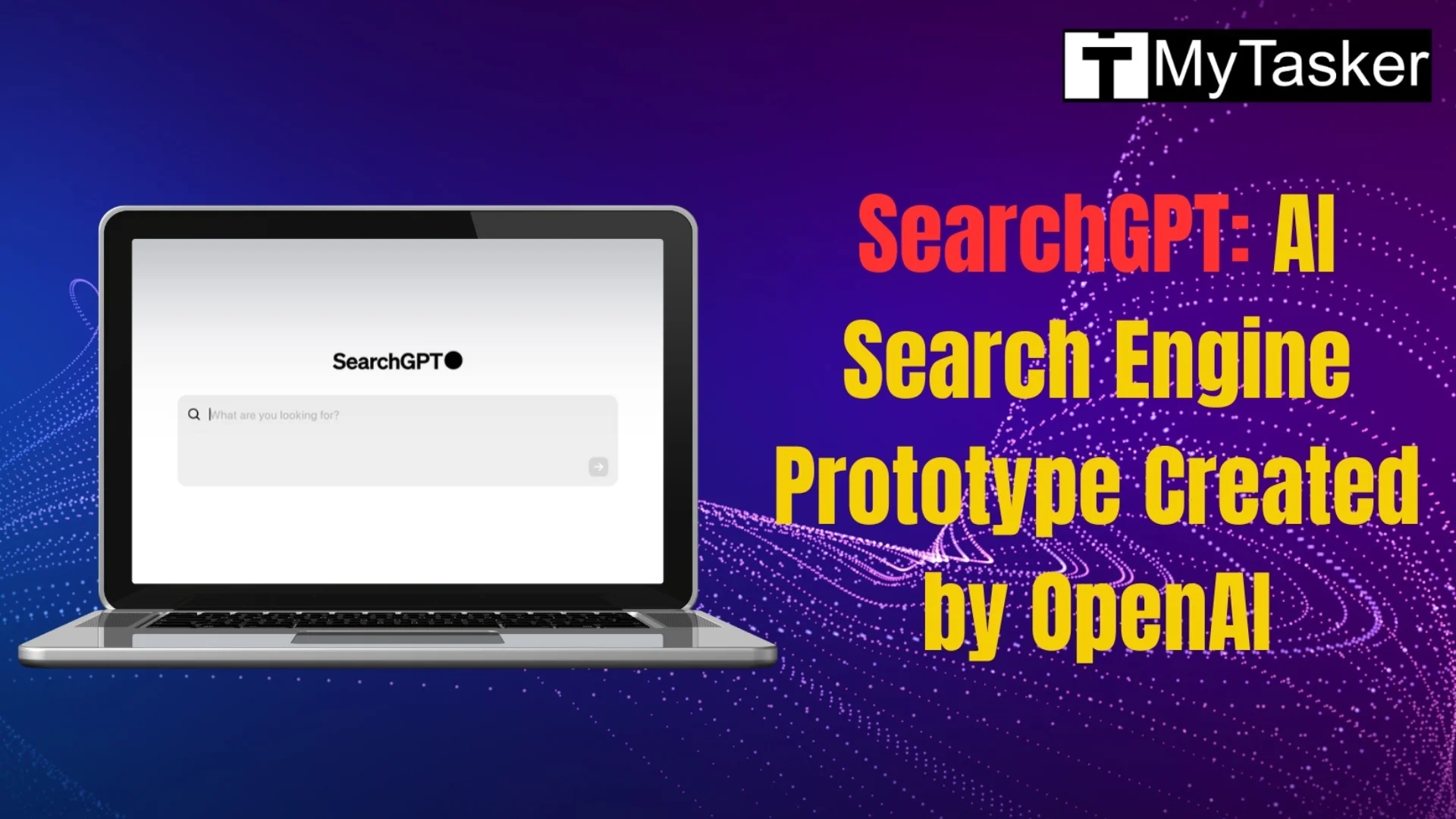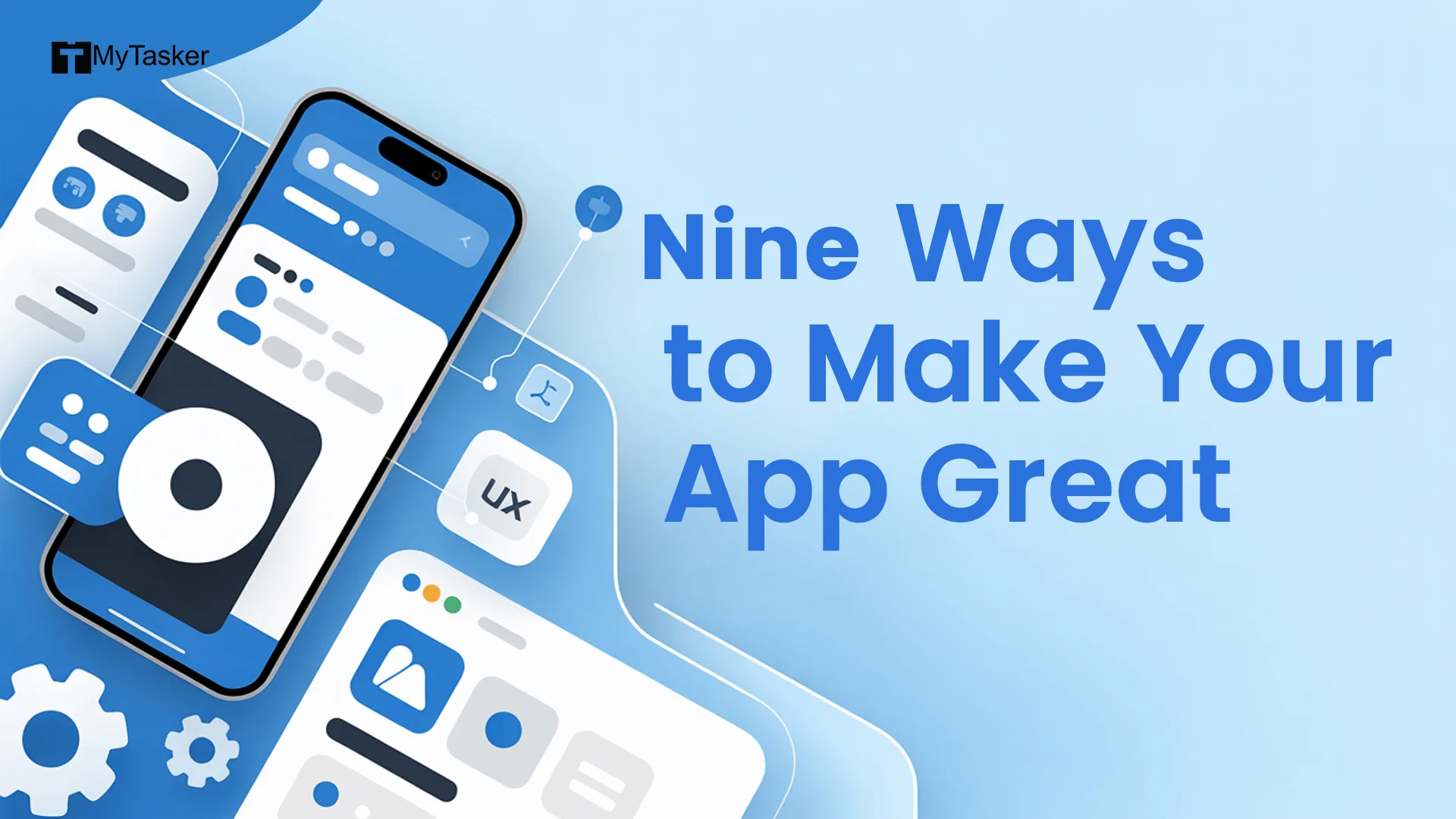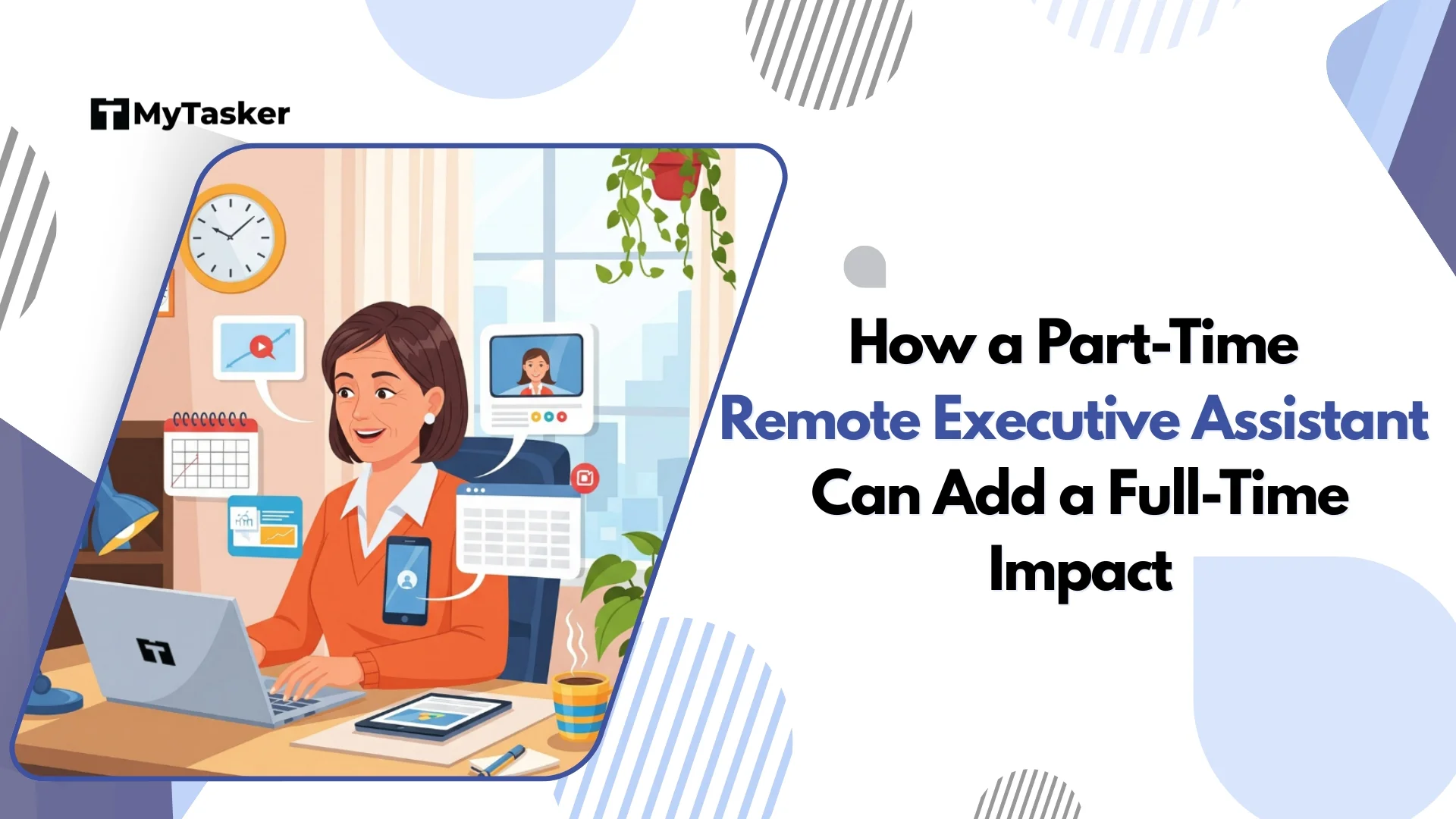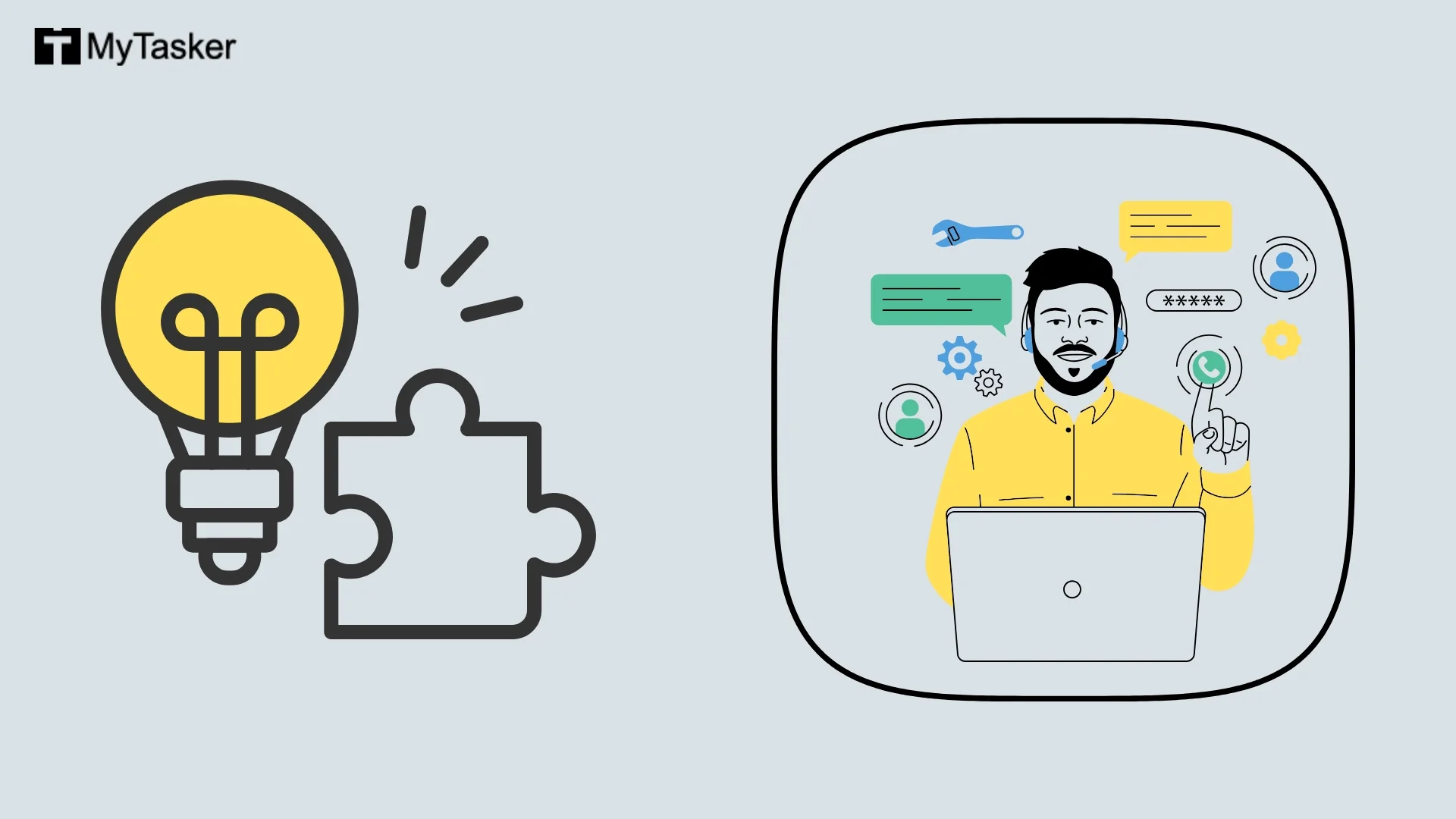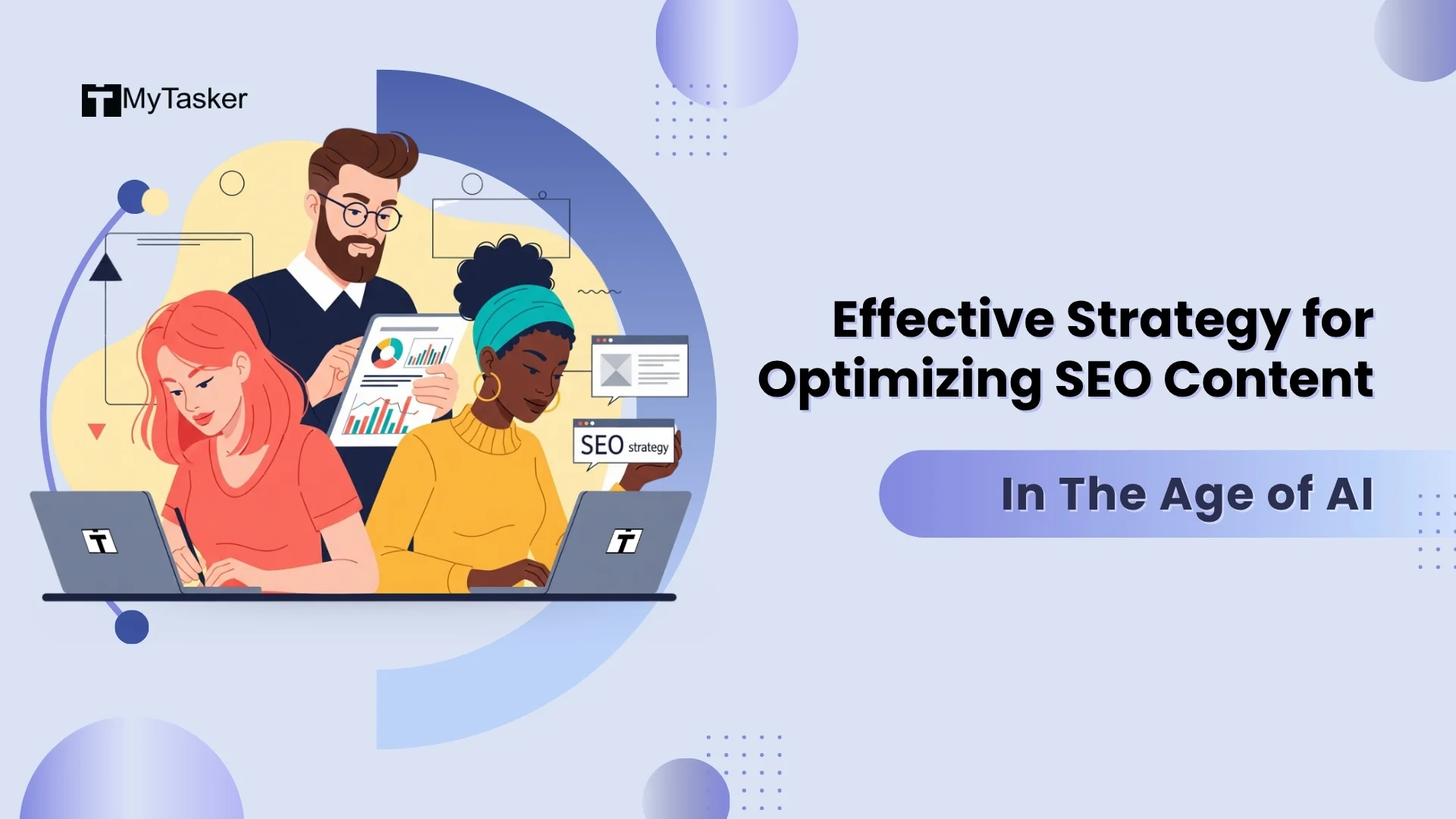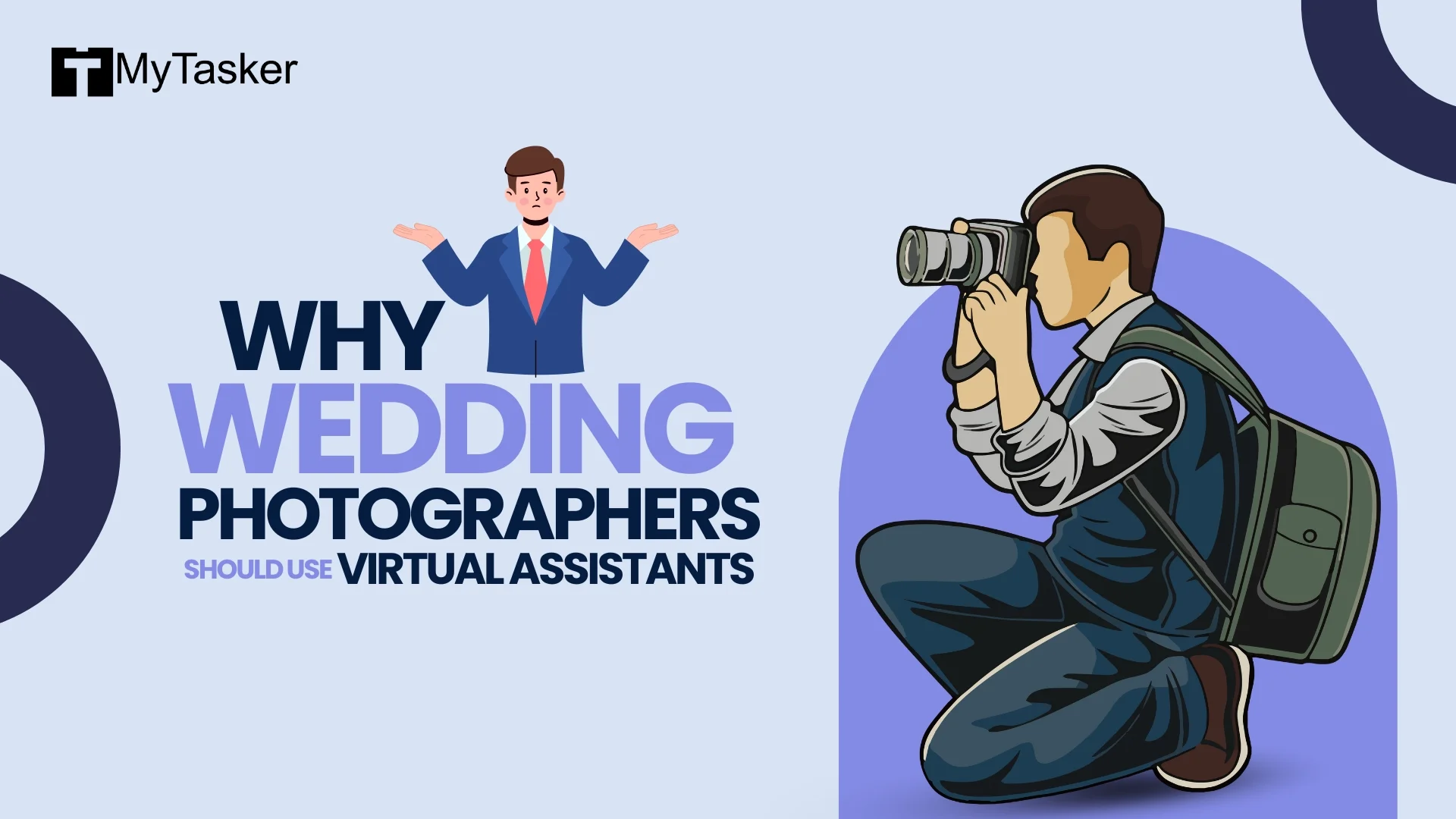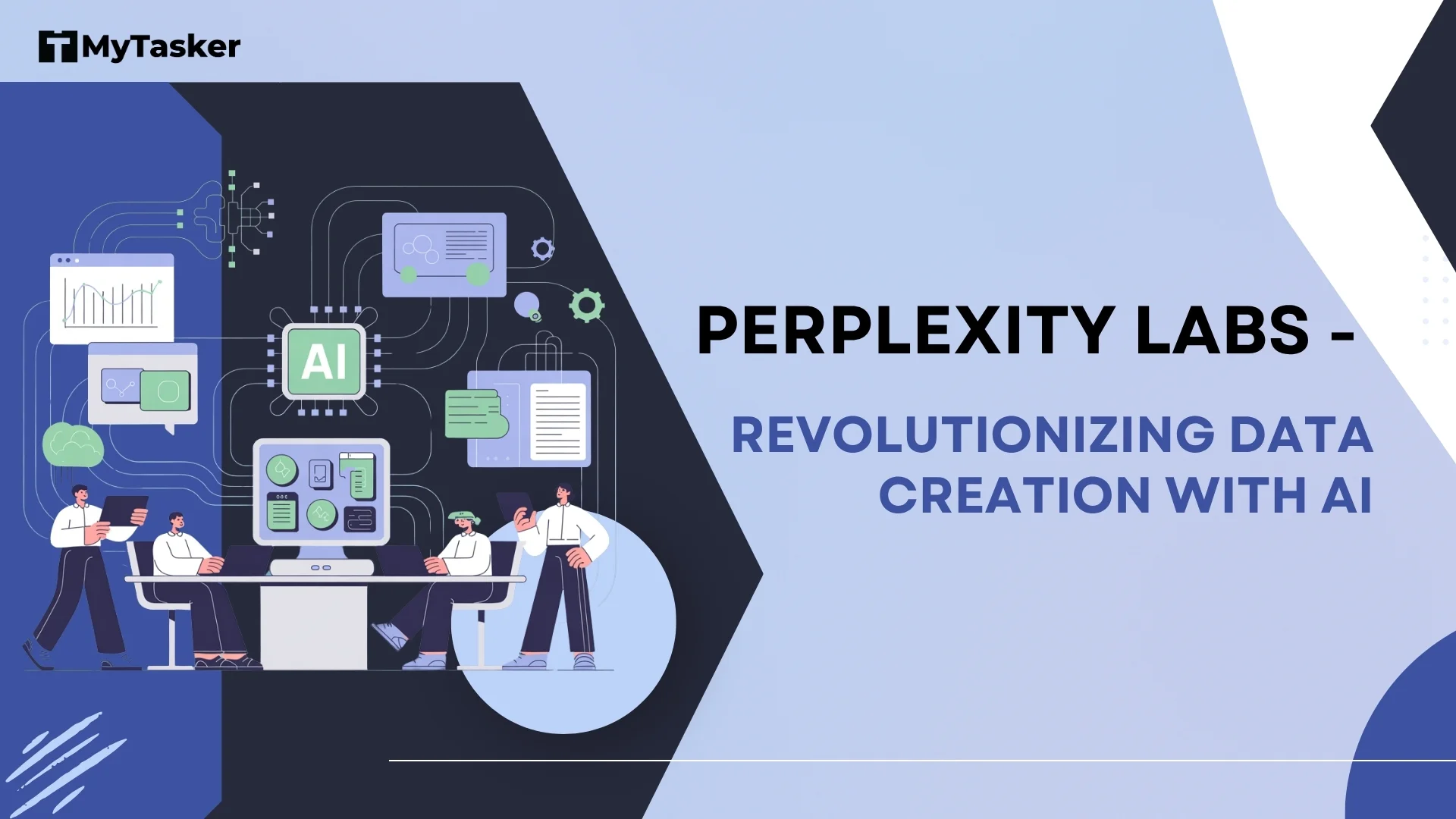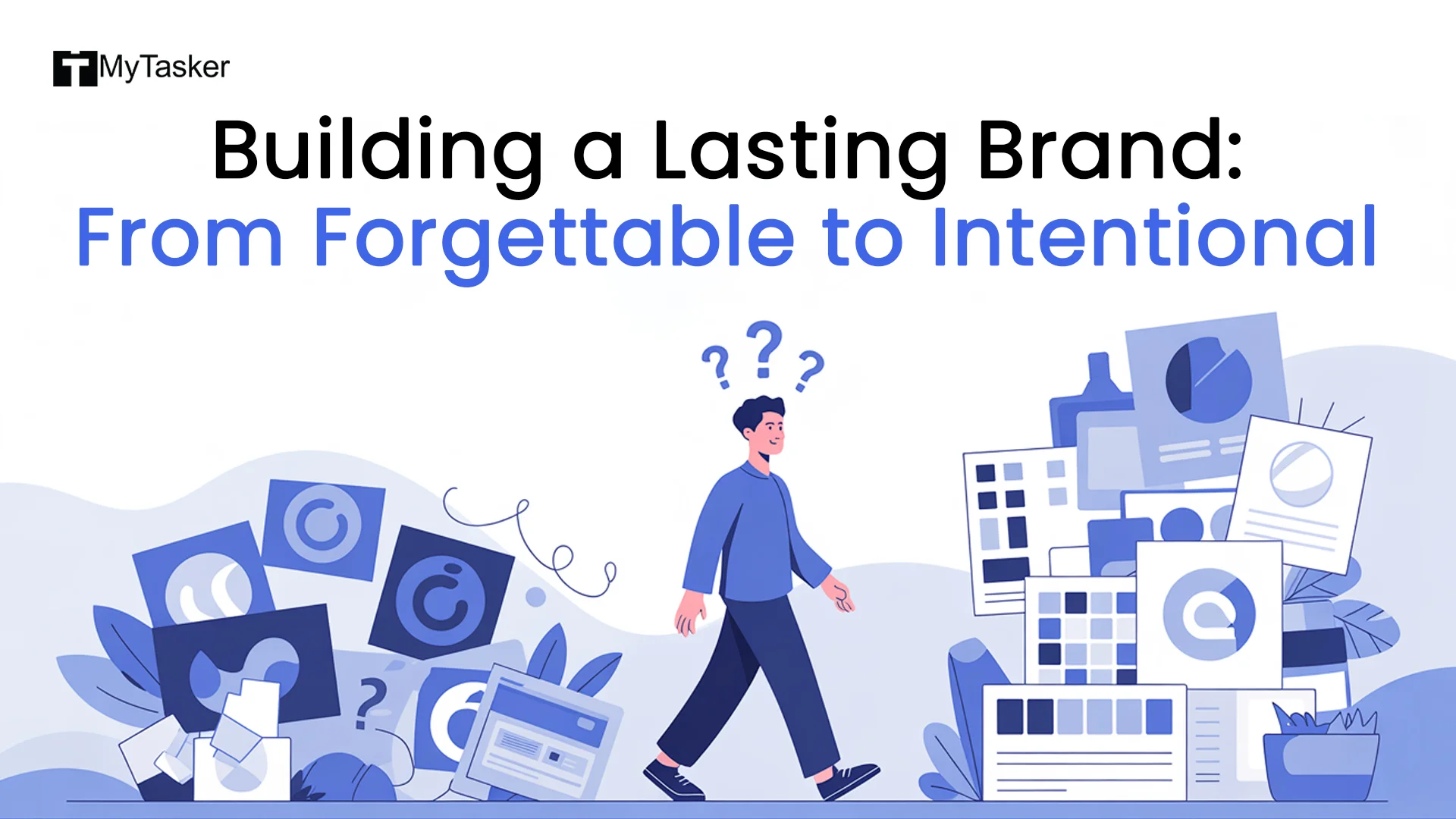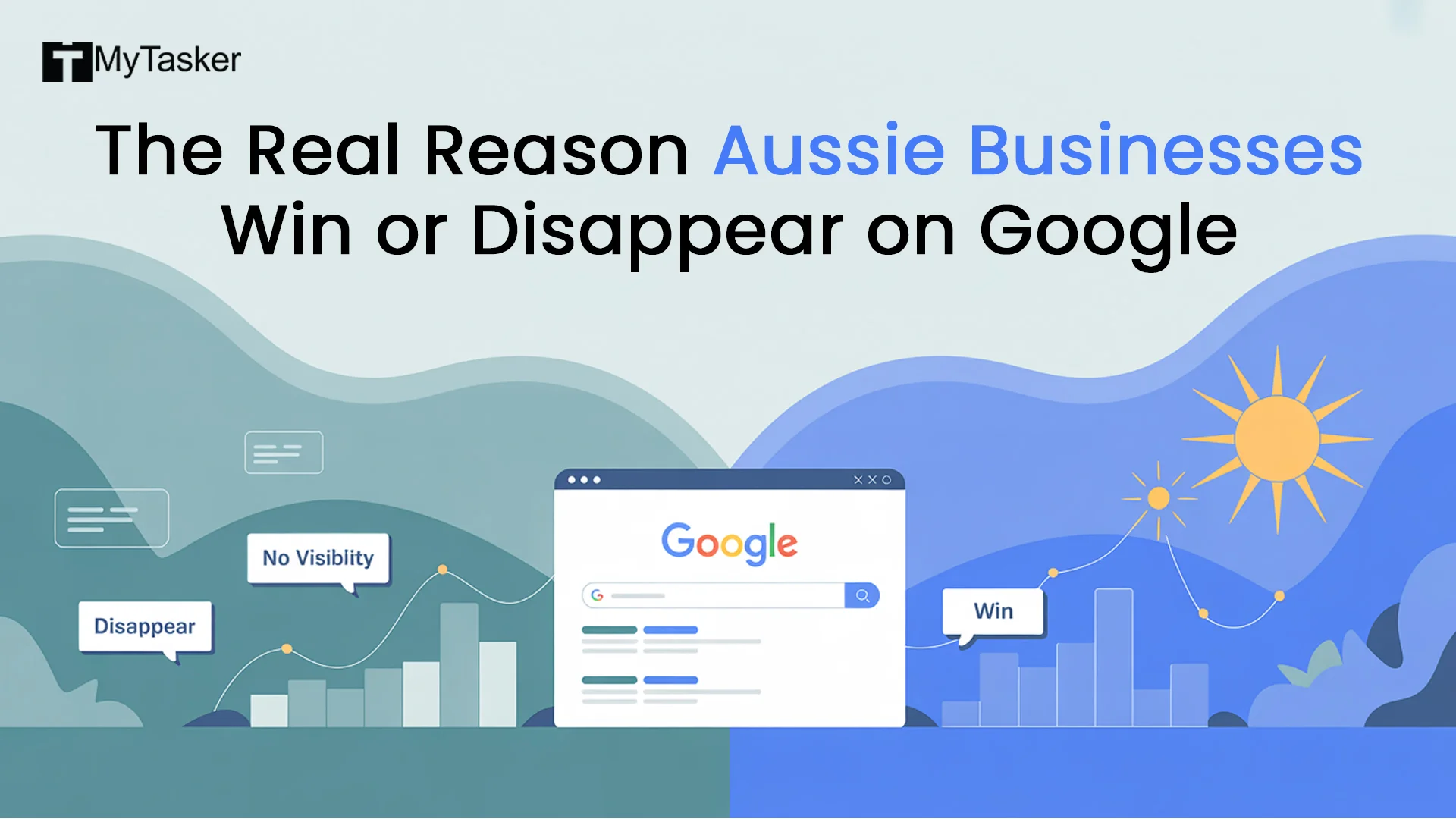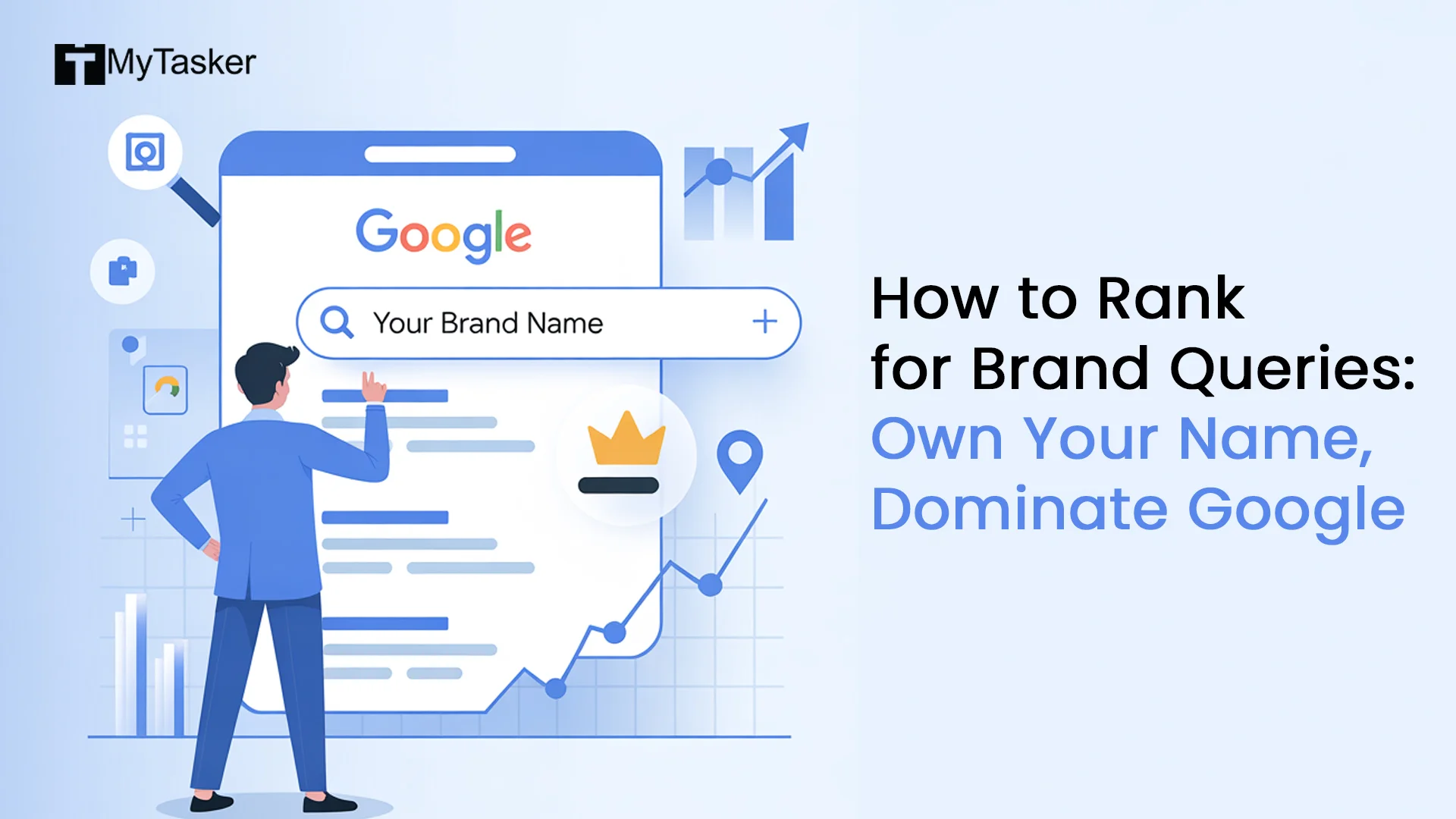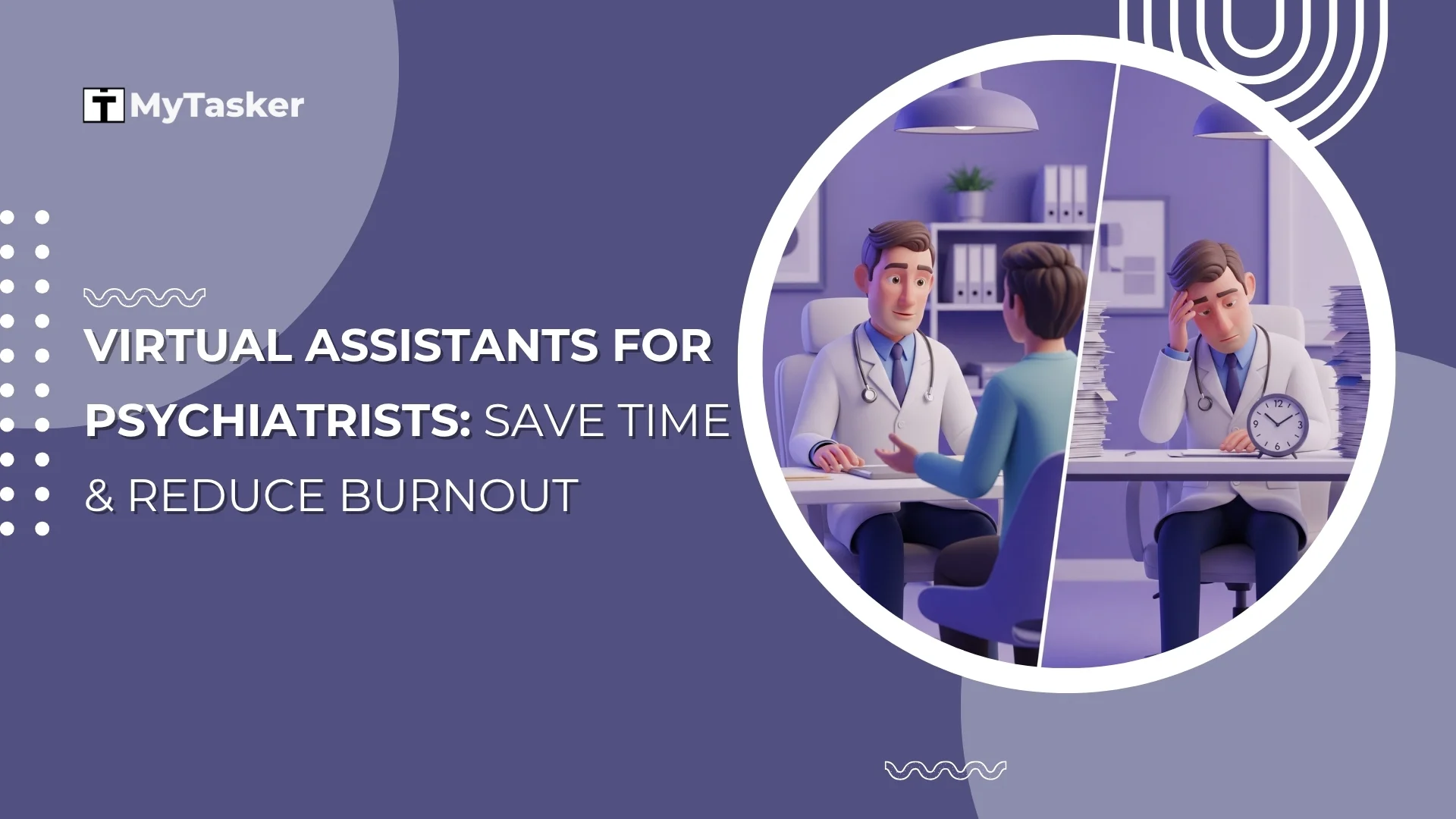OpenAI, the inventor of ChatGPT, has launched a prototype called SearchGPT to change our search experience. It is designed to provide us with a conversational search experience on real-time web information and relevant results.
At this moment, SearchGPT is only accessible to a small group of users and publishers. OpenAI aims to gather feedback and improve SearchGPT further before making it available to the public.
ChatGPT is a great tool that we use in our daily lives for proofreading emails, structuring codes, creating diet plans and sometimes writing poems. It has become a permanent member of our phone and search browser.
However, when it comes to real-time information or source links, we still rely on search engines like Google, DuckDuckGo, and Bing. Many of us who prefer to interact with AI-powered answer engines or chatbots use Perplexity or Copilot instead.
ChatGPT, despite being a great help, falls short here.
But not anymore!
OpenAI has stated that they will incorporate the best features of SearchGPT into ChatGPT. This means ChatGPT will soon be enhanced with real-time search results.
How is SearchGPT different from search engines?
It doesn't just display a bunch of links. It actually arranges and presents information in a way that's easier for users to understand. OpenAI calls it “a new way to search”.
It will interact with us like a friend or digital assistant and provide the relevant source links.
For instance, if you look up music festivals in Boone, North Carolina, in August 2024 using SearchGPT, it won't only provide you with a list of links like other usual search engines.
It will give you a brief overview of the festivals going to happen during that period of time at that place, along with brief event descriptions and links to online sources.
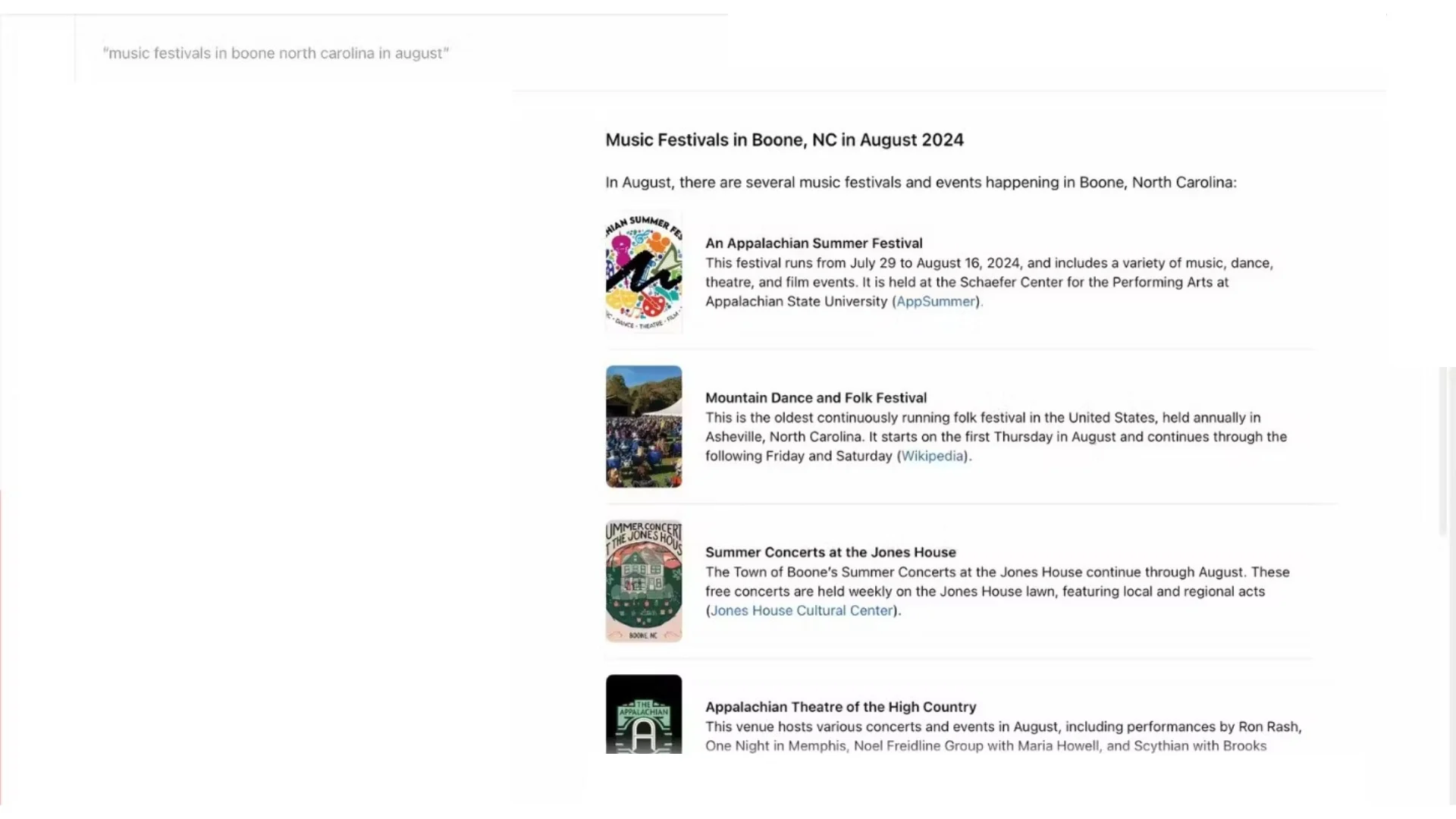
It’s designed to provide the information requested swiftly and in a conversational manner, consisting of source links and recommendations.
How is SearchGPT Different From ChatGPT?
Think of ChatGPT as that friend who is unmatched in conversation and eloquence, always there to help and provide recommendations. However, when you ask where he got that information or wisdom from, he fails to answer.
Not only that, he talks endlessly about ancient history, but when you ask about any event that happened yesterday, he feels embarrassed.
But the dynamics are about to change. The friend is pushing his boundaries! He will now be able to provide you with references and discuss recent events.
This will happen because his sister (SearchGPT) is helping him. She is going to empower him with the ability to provide reference links and comment on the latest events.
We have yet to see if SearchGPT will merge with ChatGPT or remain separate.
When will SearchGPT be Available to the Public?
We don’t know its release date yet. OpenAI has not announced the date so far. It will collect the select user feedback and then refine it before releasing it to us. But you can join the waitlist! I have already done it!
How Can Users Sign Up for the Waitlist?
You can join the waitlist by visiting the SearchGPT Prototype page. After that, click “Join waitlist.” You need to register using your email address.
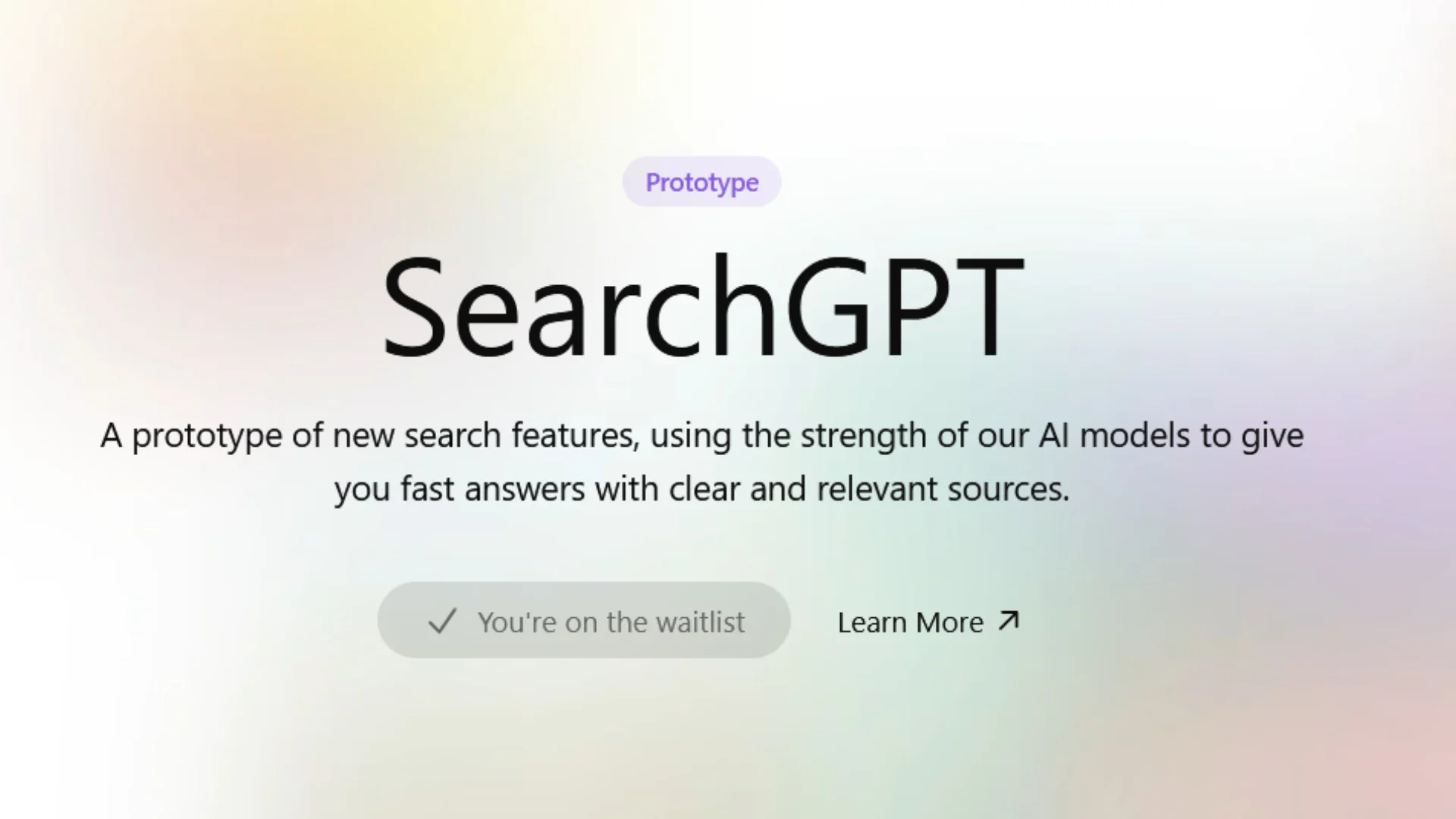
What Can SearchGPT Do?
- Provide conversational information with direct sources.
- Answer follow-up and counter questions of ours. It’ll help us get refined answers.
- It will enable us to search with voice, text and images within one tool.
- Locate local businesses and products following our specific queries.
Can SearchGPT Beat Google in the Search Market?
The comparison is irrelevant. It’s as if comparing apples with oranges. If we compare it with Google’s Gemini, Copilot and Perplexity, then it sounds reasonable.
However, even for that, we need to use it for different search requirements and in different situations first.
Google is the king of search engines, while SearchGPT is an emerging technology with the potential to reshape our search experience. However, they exist in different weight categories. SearchGPT is in its early stages, whereas Google has its own ecosystem—Google Workspace!
Google Search is renowned for providing high-quality search results on a global scale. Colloquially, we still say “Google it” when we want someone to search for information online.
According to Statcounter, Google, with a global market share of 91.06% as of June 2024, remains the most prominent tech giant in the search market.
When it comes to finding tutorials, government information, and how-tos for different tools and platforms, I personally think Gemini outshines all other chatbots.
As for how well SearchGPT works, only time will tell! We've to wait and see.
Gemini is well-integrated with Google products like Gmail, YouTube, and Google Search. This means you don't have to open Gemini separately. You can use Gemini to write an email in Gmail. It helps summarize emails, plan tasks, and obtain real-time information.
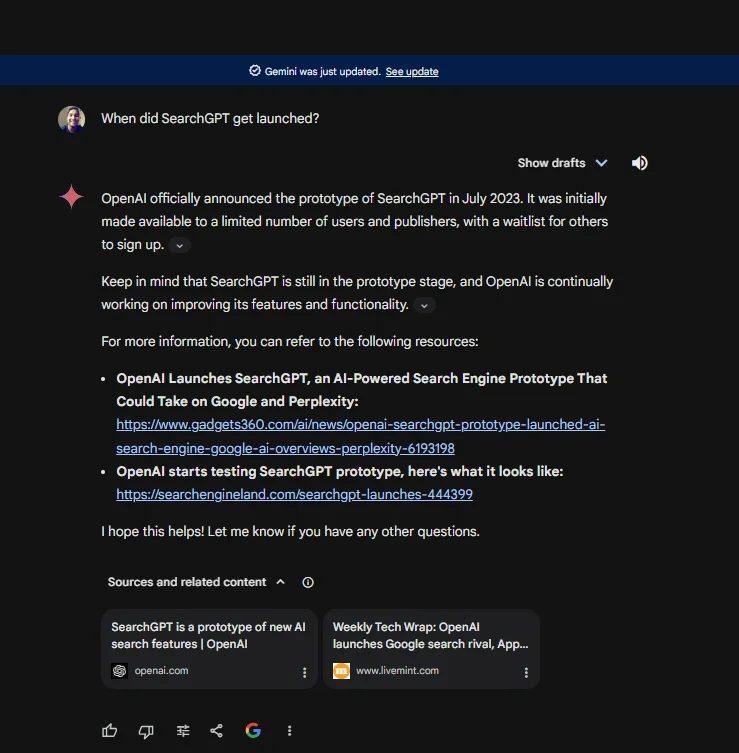
While looking for local information, I was disappointed by Gemini. In this situation, Perplexity far surpassed Gemini.
I searched for "5 Places to eat Pizza in London". I received the following details from Gemini (it says it can't search for places with Google Maps):
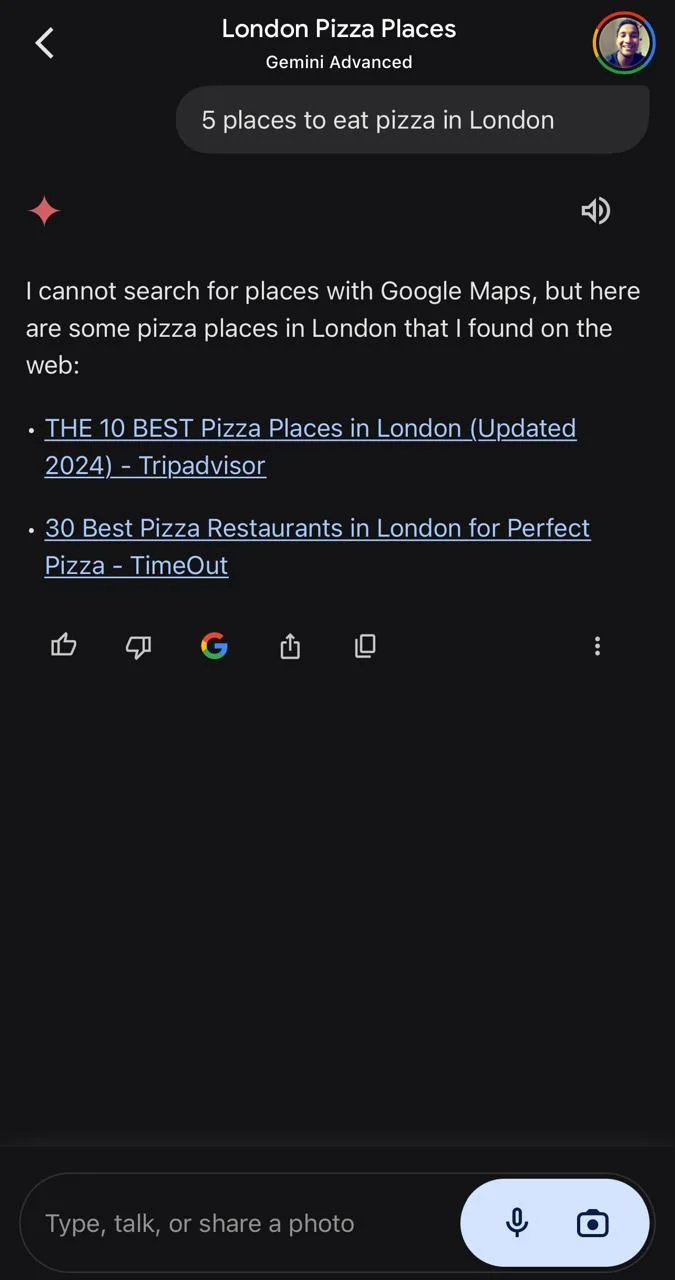
And for the same query, I got the following answer from Perplexity. You can see the difference!
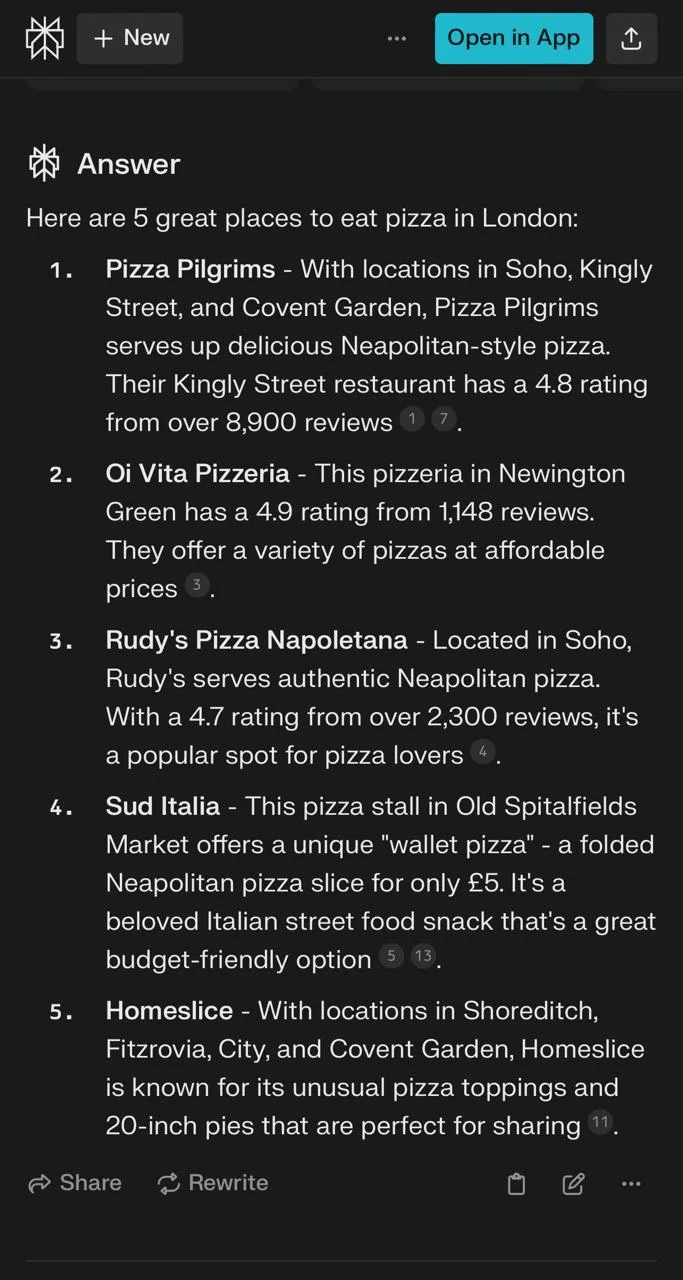
Is a conversational interface or AI chatbot good for searching?
Absolutely, chatbots are efficient and convenient for finding information and conducting research. You don't have to repeatedly type new queries; they remember your previous searches. Additionally, they can handle complex queries that might be challenging to search for using regular search engines. They help you delve deeper and find specific information without sifting through irrelevant content, link by link, and page by page.
However, when it comes to finding someone's contact details, search engines are still the best choice. This is because finding the right information often means checking many possibilities and requires quick thinking. As of now, human assistants are unmatched in handling these tasks.
One of the significant factors where AI-powered answer engines supersede traditional search engines is the absence of "advertisement clutter".
Unlike traditional search engines, chatbots like Perplexity, ChatGPT, or Gemini don't display sponsored ads. This is because the monetization feature is currently not available.
Indeed, Chatbots have biases based on the data they’re trained on. However, this problem also exists in search engines where inaccurate information, fake reviews and biased perspectives are indexed in search queries.
With time and a lot of effort, everything evolves, and so will the Artificial Intelligence search features!



